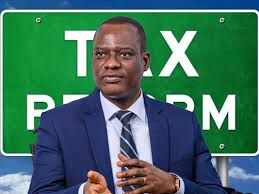On Sunday, news broke that a United Kingdom-based taxi driver has remained on the Federal Government’s payroll despite migrating to the UK in 2022, sparking widespread outrage.

Civil society organizations expressed their frustration to The PUNCH, highlighting this incident as a glaring example of the entrenched corruption within the Nigerian civil service.
Last week, President Bola Tinubu ordered a crackdown on civil servants who continue to draw salaries despite living abroad.
“The culprits must be made to refund the money they have fraudulently collected,” President Tinubu stated.
The BBC reported that a 36-year-old Nigerian civil servant, known as Sabitu Adams (not his real name), who moved to the UK in 2022, still receives a civil servant’s salary.
‘Receiving N150,000 Monthly’
According to the report, Adams, despite working as a taxi driver in the UK, continues to receive N150,000 monthly from his Nigerian government job, owing to an arrangement with his boss.
“When I heard about the President’s directive, I smiled because I know I am doing better here – and not worried,” Adams said to the BBC.
When asked why he didn’t resign after relocating, Adams responded, “To be honest, I didn’t resign because I wanted to leave that door open in case I choose to go back to my job after a few years.”
Corrupt Civil Service
Reacting to the case, civil society organizations emphasized the need for stringent measures to restore accountability and effectiveness within the civil service. They called for the prosecution of those involved in unauthorized salary payments and urged the government to take decisive action against such corruption.
Auwal Musa, Executive Director of the Civil Society Legislative Advocacy Centre, voiced concerns about pervasive corruption and lack of accountability within Nigeria’s civil service.
Musa stated, “The lack of accountability in governance is the crux of the matter. If people who are not supposed to collect salaries are still collecting, it means some people are coordinating to short-change the nation. This is a result of the corruption within the civil service system. Many are receiving salaries and allowances without even appearing in the office.”
Musa called for a comprehensive audit of workers and stressed that those involved in corrupt practices should be held accountable.
Debo Adeniran, Executive Director of the Centre for Anti-Corruption and Open Leadership, criticized civil service leaders for their failure to uphold their duties.
“It is an admission of dereliction of duty. The Head of the Civil Service should be fired because it is her job to ensure that every civil servant is at their duty post at all times. Supervisors must oversee the functioning of each officer and render a performance index daily. The buck stops on her desk,” Adeniran stated.
He also called for accountability from heads of agencies, departments, and key officials like the accountant general and auditor general, stressing the importance of maintaining attendance registers and job performance records for salary processing.
Adeniran further suggested that those who aided such practices should be handed over to the Independent Corrupt Practices Commission for investigation and prosecution.
Emmanuel Onwubiko, National Coordinator of the Human Rights Writers Association of Nigeria, emphasized the need for consequences for those responsible.
“What is going to happen to the person that allowed it to happen? That is what the government should be asking. Extend it to those who benefited initially from the funds. If it is the Head of Service, the person should be dismissed. If the person is no longer in service, then appropriate actions must be taken,” Onwubiko stated.
Similarly, Okechukwu Nwagunma, Executive Director of the Rule of Law and Accountability Advocacy Centre, stated that the practice is unacceptable within the public service.
“If any public servant needs to travel out of Nigeria and stay away from work, there must be a permit,” he said.
Biodun Sowunmi of the Think Tank Group, a democratic institute dedicated to ensuring stability in Nigeria, attributed the situation to a total system breakdown.
“We now have a situation where we have workers in the state and federal civil service based abroad. They either went for a quick job or relocated without their salaries being discontinued. This is a mark of corruption within the system. The new payment system introduced by the Federal Government was meant to address this. What is happening now shows the weakness in the system. It has not been able to stop the milking of the country’s resources by those who have migrated,” Sowunmi said.
He urged the government to take decisive action to identify and punish those responsible for exploiting the country’s resources.
Ghost Workers: A Persistent Problem
Supporting others, Olusegun Elemo, Executive Director of Paradigm Leadership Support Initiative, highlighted that the japa syndrome is not limited to the federal level but affects various states and agencies.
“It is not particular to the Federal Government. There are multiple cases across different states and multiple agencies of government at both federal and state levels. We cannot shy away from the Japa syndrome. It is affecting everyone, including many young people in civil service,” Elemo remarked, stressing the need for comprehensive reforms.
Elemo proposed that both federal and state governments, along with local authorities, undertake thorough payroll audits to identify discrepancies and ensure proper management of public funds.
He also suggested implementing performance assessments to evaluate the contributions of government personnel, enhancing productivity and accountability within the civil service.
“What the government needs to do, not just the federal government but also the state and local governments, is conduct a payroll audit and a performance assessment of personnel to see who has been contributing to the pool of performance,” he said.
The issue of ghost workers in the federal civil service has been a persistent problem, with several notable cases highlighting the extent of the issue.
In June 2022, the Director-General of the Bureau of Public Service Reforms announced that the Integrated Personnel and Payroll Information System had identified and removed approximately 70,000 ghost workers, saving the government at least N220 billion.
In July 2020, the Ministry of Finance announced that it had identified over 50,000 ghost workers on the payroll of various federal ministries, departments, and agencies.
In 2018, the Federal Government discovered ghost workers among the beneficiaries of the N-Power scheme, a social investment program aimed at employing young Nigerians. This discovery was made through the Bank Verification Number system, which helped identify multiple accounts linked to a single individual.
An additional 11,000 ghost workers were uncovered during a payroll audit in May 2017. This effort was part of a continued crackdown on corruption and inefficiencies within the civil service. The audit used biometric data and other verification methods.
In March 2016, President Muhammadu Buhari’s administration discovered over 23,000 ghost workers on the federal payroll, saving the government about N2.29 billion monthly.
Read also:
- Joke Silva, Olu Jacobs Spotted Relaxing at Ikoyi Club Following Death Rumor
- NAF Helicopter Crashes in Kaduna
- Toyin Abraham Allegedly Arrests Troll Who Wished Her Son Harm
- Iyabo Ojo Fires Back at Seun Kuti, Vows Legal Action Against Verydarkman Over N65M Claim
- Tolanibaj reveals how Wizkid’s fans sent her death threats for defending Don Jazzy
- Police Clarifies: VeryDarkMan Was Invited, Not Arrested
- Colombia vs Costa Rica Highlights: COL 3-0 CRC, Copa America 2024
- Vinicius Jr Shines as Brazil Triumph 4-1 over Paraguay in Copa America
- Those Criticizing Me for Not Covering My Head in Mecca Are Ignorant — Oluwo
- Criticism Follows Angela Okorie’s Outfit at Mr. Ibu’s Funeral
- NEMA Welcomes 103 Nigerians Deported from Turkey
- Peller’s Reaction Goes Viral After Olamide Gifts Him N5M
- Tolanibaj Seeks Love and Laments Being Single
- Old Video of Davido Revealing How Paulo Helped Him Earn His First N10M Resurfaces
- Ezinne Kayode Opens Up About Her Relationship with Pastor Tobi
- Tonto Dikeh Stands Up for Sharon Ooja Amid 4th Wife Allegations
- Nigerian Man Raises Eyebrows by Selling Fruits in Full Corporate Wear
- Labour Rejects Governors’ Bid to Take Over Minimum Wage Negotiations



